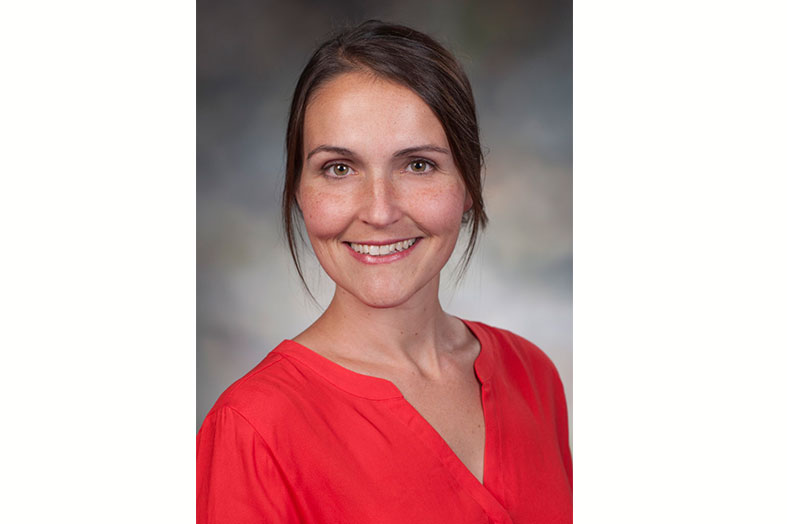Bess Frost, Ph.D., assistant professor of cell systems and anatomy at the Barshop Institute for Longevity and Aging Studies, has been awarded the 2016 New Investigator Award in Alzheimer’s Disease from the American Federation for Aging Research.
Three New Investigator Awards in Alzheimer’s Disease, at $100,000 each, have been given this year.
Dr. Frost’s research will explore “Investigating a Toxic Role of Nucleoplasmic Reticulum Expansion in Alzheimer’s Disease and Related Tauopathies.”
“AFAR is a pillar in the field of aging research and is world-renowned as a significant contributor to aging-related research funding and education,” Dr. Frost said. “I will take advantage of the opportunity to expand my scientific network, identify common interests, and explore potential collaborations with other AFAR awardees. In addition, the AFAR grant has not only allowed me to hire a postdoctoral fellow who will be committed full-time to studying repercussions of tau-induced nuclear architecture disruption, it has bestowed credibility to my new laboratory that has enabled me to attract high-quality postdoctoral applicants.”
With support from The Rosalinde and Arthur Gilbert Foundation, the major goal of The AFAR 2016 New Investigators Awards in Alzheimer’s Disease program is to support important research in areas in which more scientific investigation is needed to improve the prevention, diagnosis, and treatment of Alzheimer’s disease. The program also serves to encourage junior investigators in the United States and Israel to pursue research and academic careers in the neurosciences, and Alzheimer’s disease in particular. The program, now in its tenth year, has provided more than $4 million to 47 scientists in the United States and Israel.
“Through this award, AFAR and The Rosalinde and Arthur Gilbert Foundation are committed to nurturing these highly qualified researchers to ensure the availability of the brainpower and talent needed to fuel future progress in Alzheimer’s disease research” says Martin H. Blank, Jr., trustee of The Rosalinde and Arthur Gilbert Foundation.
“Even if we can make modest advances in preventing Alzheimer’s disease or delay its progression, this could have a huge global public health impact.”


